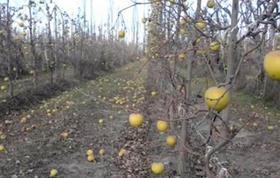
Apple producers in the provinces of Río Negro and Neuquén fear spiralling domestic inflation and the freefalling real could mean the disappearance of the Brazilian market for Argentine topfruit.
The warning follows the release of data showing that the region’s exports to Brazil fell by 65 per cent this year. This was partly the result of Brazil’s decision to suspend imports of Argentina apples, pears and quinces in March after discovering codling moth in a number of shipments. The ban, which was not lifted until mid-June, is estimated to have cost the industry hundreds of millions of dollars.
The sliding real has also taken its toll on returns, with growers noting that a year ago they received US$30 for a carton of apples sold in São Paulo whereas today this had fallen to US$17.
In 2014 Argentina sold almost 50,000 tonnes of apples to Brazil but this year it shipped just 12,000 tonnes.
Speaking to Clarín, Jorge Figueroa, president of the Federation of Río Negro and Neuquén Fruit Producers said: “We have had to throw away a large volume of fruit, while a substantial amount remains in coldstorage awaiting a buyer”.
A recent study by Argentina’s Institute of Economic Studies reveals that Patagonia is the region that has seen the biggest contraction in exports since 2011. In the past four years, they have fallen by 30 per cent.



